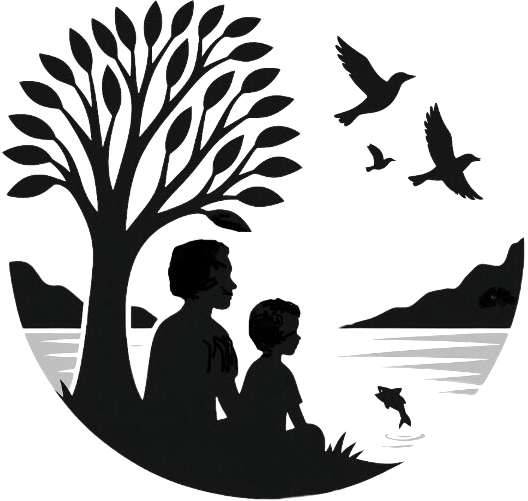People have been changing and improving the Bloomington community for over 20 years through The Center for Sustainable Living, and their reach can be seen through the diversity and breadth of our projects.
The Projects underneath the Center for Sustainable Living are grassroots initiatives that have been proposed by community members and approved by the Board of Directors as projects that align with the mission of the CSL. We consider sustainability broadly, meaning environmental, social, and psychological wellbeing and its sustenance are important to us.
Becoming a Project
The Center for Sustainable Living is looking for your ideas, innovation, and collaborative efforts to further sustainability in the Bloomington community. Is your group looking for more support? Do you want to be a part of a network of similar initiatives? We are looking for mission-driven, community-led projects that creatively and effectively promote ways of life that support both people and the environment.
Fiscal Sponsorship
As a fiscal sponsor, the CSL acts as an “umbrella” organization for its Projects, providing them with administrative support and financial oversight. The Center for Sustainable Living’s legal status as a 501(c)3 tax-exempt organization extends to its projects through their membership with the CSL.
The Project Agreement
Part of becoming a Project includes the Project Agreement, which outlines the legal, financial, and administrative relationship between CSL and its projects—including training, meetings, representation, reporting, and financial management.
Read the CSL Project Agreement
Apply to Join Us
Interested in becoming a Project of the CSL?
Apply Now
Graduates of CSL
Some Projects grow and reach a point where they wish to become their own 501(c)3 and take on new, exciting things. Other Projects might become part of another movement or organization.
EcoReport (2007)
News program on WFHB, providing coverage of weekly environmental topics.
Local First Indiana (2009)
Promoted the local economy by showing consumers the importance of local businesses and connecting businesses to each other. Local First became its own 501(c)3 in 2013!
BOGA (2004)
The Bloomington Organic Growers Association was established by graduates of CSL’s Grow Organic Educator Series to continue the work and momentum of the class. BOGA focuses on organic gardening and lawn care education as well as related trips and workshops for participants, and continues to host two plant swaps each year.
Friends of Lake Monroe
This organization works to protect and enhance Lake Monroe and its watershed through science, advocacy, and public involvement: working collaboratively with citizens, government, and business to improve and support lake water quality.
Check Out Friends of Lake Monroe
Healthful Food for All Fund
To make fresh, local, healthful food more available to low-income households, the Healthful Food for All Fund has two projects: the Farm to Family Fund and the SNAP (Supplemental Nutrition Assistance Program) Matching Program.
The Farm to Family Fund aims both to make healthful, sustainably produced food more available to low-income households and to support our local, sustainable food system. Every Saturday at the Bloomington Winter Farmers’ Market, the Farm to Family Fund offers to pay farmers half price for food they don’t sell at market. The food is delivered directly to agencies serving those in our community currently experiencing food insecurity – The Rise, The Community Kitchen of Monroe County, and Mother Hubbard’s Cupboard.
The SNAP Matching Program is designed to make the food available at the Winter Market more affordable for SNAP cardholders by matching the SNAP benefit up to $18 per week.
Past Projects of CSL
In any organization, projects come and go—CSL is no exception. We have had a number of Projects take part in our collective mission, and we are thankful for the contributions each and every one made to our community.
Simple Living Circle (1998–2003)
This group formed around the idea that we don’t need as many material possessions as we think. They sought the fulfillment and benefits of a simpler way of life, including a reduced impact on the environment.
Food Project (1998–2009+)
This project distributed mostly vegan and vegetarian food from Hoosier Hills Food Bank to low income families. The Food Project was one of CSL’s longest-lasting projects, operating out of Lucille Bertuccio’s basement in the early years. The impact was substantial: In 2007, around 60 people were benefitting from the program each month, and grew to 764 households in 2009.
BloomingHOURS (1999–2001)
Former President and active board member Mike Englert led this initiative to establish a local currency for Bloomington, aiming to encourage more local exchange and support for Bloomington businesses. Ultimately, most of the currency ended up at Bloomingfoods and many of the businesses that accepted BloomingHOURS already provided uniquely local services. However, even if consumers did not change their shopping habits drastically, the idea still penetrated the community to show the importance of our local economy.
Composting Project (1999–2004)
Lucille Bertuccio was a strong supporter of composting, and this project worked with local schools to create and maintain food waste composting in schools.
Wild City Initiative (1999–2005)
This project emphasized the importance of maintaining biodiversity and wildlife habitats in urban spaces and focused on certifying areas as wildlife refuges. The group worked with homeowners, businesses/organizations, and schools. For example, in 2000 the Binford School Project brought 1800 native Indiana trees to plant at the school and reduce the need for mowing.
GoodFoods Group (est. 2000)
This project advocated for labelling foods that are genetically engineered and held teach-ins and workshops to talk about the issue with the community.
BloomingVision (2000–2005 & 2015)
BloomingVision gathered input and prepared comments for the Growth Policies Plan for the City of Bloomington, looking at ways to improve urban development, mixed use zoning for more walkable neighborhoods, and more. Lucille Bertuccio and Christine Glaser from the CSL, along with Chris Sturbaum and Dave Rollo from city council, were the main participants in the early 2000s. A second report was created in 2015 by Andrea Avena Koenigsberger, Christine Glaser, Ryan Conway, and Eric Ost.
Natural Building Group (2000–2007)
Led by Jeanne Leimkuhler and Joe Davis, the Natural Building Group’s main achievement was the construction of a straw bale house with Habitat for Humanity. The project partnered with Bloomingfoods and Harmony School, finishing the house in the spring of 2004.
GOES (2000–2016)
The Grow Organic Educators Series was a semester-long course (3 hrs./week) on organic farming which took place at Hilltop Garden. Farmers, professors and other experts were involved and the course had 120+ graduates in the first four years. The project was a partnership with the City of Bloomington through the Free University started by Michael Simons.
GenEthic Alliance (2001)
Worked to build awareness of genetically modified foods.
Green Space Initiative (2001)
Worked on a Natural Resource Inventory for Monroe County and wanted to protect, preserve and restore natural areas.
Tea Party (2002–2004)
Prior to and unaffiliated with the political Tea Party, this journal and CSL project published articles on a variety of topics, taking open submissions and advertising through the CSL newsletters.
Earth Garden (2002–2005)
This was another project to promote wildlife habitats and green spaces in Bloomington. Specifically, Earth Garden wanted to modify the “weed ordinance” and take vegetation out of the city’s trash code, aiming for the city to encourage natural landscaping.
Holistic Affordable Housing (2003–2007)
This project aimed to establish low-income eco-apartments in Bloomington using a variety of green techniques and focusing on sustainable living through efforts in energy efficiency and re-use as well as organic agriculture.
B-TOP (2004–2009)
Bloomington Transportation Options for People promoted the transition from cars and other vehicles to public transportation, biking, walking, etc. The group held workshops and hosted speakers on topics related to sustainable transportation.
Young Activist Funding Network (2004–2006)
This project valued the voices of youth and aimed to empower them in their passion for justice issues.
Green Dove Network (2004–2010)
The network provided news and resources related to peace and justice efforts.
Habitat for Sustainability (2004–2006)
This project grew out of the efforts of the Natural Building Group with the goal of providing more sustainable homes for low income residents.
Bloomington Community Wildlife Habitat (2004–2008)
Lucille Bertuccio took the lead on CSL’s mission to turn Bloomington into a certified Community Wildlife Habitat as designated by the National Wildlife Federation. Habitat Stewards then trained volunteers to help complete the individual assessments/certifications. In order to qualify, homes/businesses/churches were required to provide food, water, shelter and a place to raise young for the wildlife in their yard area. The project was successful, officially obtaining the certification in October of 2008.
Bloomington Urban Gardens for Students (2005)
A project partnership with Unitarian Universalist Church and Templeton Elementary to create Plant a Row for the Hungry.
Bloomington Circus Collective (2005–2006)
Held a variety of artistically-driven events and spectacles with a focus on social and environmental justice issues.
Indiana Holistic Health Network (2006–2010)
Provided information and resources regarding holistic services and green lifestyle choices. Co-sponsored the Simply Healthy Fair with the Green Dove Peace Network.
Eco-Link (2007)
Connected members to sustainability-focused events, activities, and resources through weekly email newsletters.
The Luna Moth Art Gallery (2007)
Supported ecological principles through the display of different kinds of art in the lobby of the Caldwell EcoCenter. The art was changed twice a month to showcase various groups and individuals.
The Declaration of Peace (2007)
Advocated for the Comprehensive Peace Plan for Iraq with the goal of ending U.S. involvement in the Iraq war. Planned protests, rallies, and lobbying events.
The Cool Earth Relay (2007)
Organized a relay race to Indianapolis from all over Indiana with the goal of raising awareness and educating people on actions to take in the face of climate change.
Worm Composting (2007)
This project worked with Middle Way House to turn food waste into worm castings and compost.
The Oasis Project (2008)
A community garden located on Washington St. behind Stahl Furniture started by IU students who took Peter Bane’s permaculture class in the Collins Living-Learning Center.
Deep Roots Animal Sanctuary (2008–2010)
A sanctuary for wild, domestic, and farm animals. Provided veterinary care and wildlife rehabilitation as well as programs and education for the community. This project aimed to take the facility off the energy grid and use native materials in its construction.
Bloomington Raw (2009)
Hosted a monthly potluck of raw foods, amongst other events.
Transition Town Bloomington (2009)
Interested in climate change, the oil industry, and the economy and “educating the community about localization and resiliency.”
ShareBloomington
This project hosted ShareFest, a sharing economy event, with workshops on building rain barrels, book libraries, and seed libraries; and operated a time bank, speaker events, tool share, and more. The motto was “don’t buy, share something.”
Open Streets Bloomington (2013–17)
For this event, the streets were closed off in downtown Bloomington and a plethora of activities took over––dancing, climbing, sword fighting, and more! The goal of Open Streets was to encourage active pastimes and to make the streets more pedestrian-friendly.
Pedestrian Movement (2003)
Deep Ecology Education Series (2006)
PeopleTree (2004–2006)
Sycamore Springs Waldorf School (2006–2008)
Garden the City
EcoSolvency Project
“…explores opportunities for starting ecologically sound and profitable local businesses”
Bloomington Sustainable Agriculture Cooperative
“…promotes sustainable agriculture in our community through a local certification that ensures soil community and grower health”
Eco-Warrior
This was a 3-part film project focused on environmental issues in Turkey, India and U.S., specifically movements led by women.
Carbon Xchange (2013)
Reducing carbon impact by connecting consumers who are using less carbon with businesses who are using more.
Trillium (2011–2018)
Effort to turn Thomson site property into horticultural park that used sustainable agriculture practices and provided food to the community; looked to Bloomington Peak Oil Task Force Report for food security recommendations


